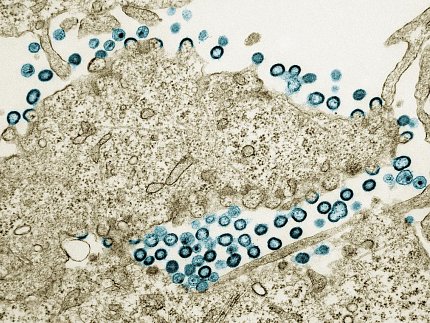Analysis Associates an HIV Drug with Elevated Cardiovascular Disease Risk

Photo: NIAID
Current or previous use of the antiretroviral drug (ARV) abacavir was associated with an elevated risk of major adverse cardiovascular events (MACE) in people with HIV, according to an exploratory analysis from a large international clinical trial primarily funded by NIH. There was no elevated MACE risk for the other antiretroviral drugs included in the analysis. The findings will be presented at the 2024 International AIDS Conference in Munich, Germany.
The Randomized Trial to Prevent Vascular Events in HIV (REPRIEVE) enrolled 7,769 study participants with HIV from 12 countries that found daily use of a cholesterol-fighting statin drug reduced the risk of major adverse cardiovascular events, such as heart attack and stroke, by more than one-third.
The REPRIEVE study team also performed statistical analyses to assess whether select ARVs were associated with MACE risk among study participants, all of whom had low-to-moderate cardiovascular disease risk. The ARVs selected for analysis had previously been linked to cardiovascular risk and included abacavir, tenofovir, zidovudine, stavudine, and drugs from a class called protease inhibitors (PIs). All were taken as part of multi-drug ART regimens.
In the investigators’ analyses, participants with prior and current use of abacavir had a 50% and 42% elevated risk of MACE, respectively, compared to participants with no abacavir exposure. Former or current use of other ARVs was not associated with any change in MACE risk, and the co-administration of common ARV drug classes as part of an ART regimen did not impact the elevated MACE risk among participants with current or prior abacavir exposure.
According to the authors, these findings align with previous studies that also identified an elevated cardiovascular disease risk associated with abacavir. More research is needed to better understand these findings in the context of known cardiovascular disease risk factors, such as dyslipidemia, diabetes and hypertension, for people with HIV.
